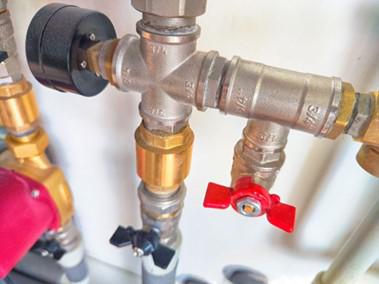
Ever woken up to the sound of dripping water in the middle of the night? Dealing with a plumbing leak — whether it’s early morning or midday — is never a fun experience. It’s not just an expensive hassle; it can also leave you constantly worrying about when the next leak might strike.
The good news? With a little proactive care, you can significantly reduce the chances of future leaks and the headaches they bring. Let’s take a look at six simple ways you can help protect your plumbing system — and keep your home (and your peace of mind) safe.
Replace Outdated Pipe Materials
Homes built decades ago often contain pipes made from materials susceptible to corrosion and deterioration. Replacing old plumbing with more resilient, modern materials significantly lowers the risk of leaks and extends your system’s lifespan.
Upgrades should include any compromised sections in high-use areas like the bathroom, kitchen, and around the air conditioning unit or pump. In addition, modern materials also support better temperature regulation, which makes them more resistant to freezing and heat-induced expansion. By choosing safe options, you’ll improve the overall performance and safety of your plumbing system.
Know Your Water Shut-Off Valve
Familiarity with your main water shut-off valve can make a major difference during an emergency. A fast response to a sudden leak, especially one occurring near the foundation or in the bathroom, depends on quick action.
Knowing the exact location of this valve allows you to stop the water supply instantly and prevent a flood from causing extensive damage. Further, letting everyone in your home know about this valve ensures the leak is handled swiftly when you're not there. When paired with modern technology like a smart leak detection sensor, this knowledge allows homeowners to take immediate control before calling a plumber.
Install Pipe Insulation
Protecting pipes from extreme temperature fluctuations is a smart way to reduce the risk of leaks. Installing quality pipe insulation helps maintain a stable temperature, which prevents freezing during cold weather and reduces the chance of bursting.
When heat escapes uninsulated pipes, it not only drives up energy costs but also accelerates corrosion and wear and tear. Insulated pipes are less likely to crack or develop moisture buildup, which can otherwise lead to water damage in areas like the basement or ceiling. This simple step can preserve the lifespan of your plumbing fixture and keep it warm on cold nights.
Keep an Eye on Water Pressure
Maintaining proper water pressure protects pipes from undue stress. High pressure can strain the water supply lines connected to your sink, toilet, and shower, increasing the likelihood of cracks or bursts. A well-calibrated pressure regulator can help stabilize the flow and greatly reduce the chance of emergency plumbing incidents.
Consistently high pressure may also cause fixtures and appliances to degrade prematurely, especially if the water contains minerals that accelerate rust or corrosion. Monitoring pressure not only safeguards your home but also supports water conservation by limiting excessive flow through taps and appliances.
Be Mindful of Soil Movement
Changes in soil due to root growth, heat cycles, or heavy rain can shift your home’s foundation and place stress on buried water lines. This movement may lead to unseen pipe damage or misaligned drainage systems.
In addition, staying alert to early signs such as cracks in the ceiling, uneven floors, or slow water flow from your tap can help catch problems early. Advances in technology now allow homeowners to use underground sensors to detect movement and moisture near key plumbing components.
Schedule Plumbing Maintenance
Routine plumbing maintenance by a licensed plumber helps identify hidden problems before they escalate. A professional inspection of plumbing fixtures, drainage systems, and pressure regulators can detect subtle signs of rust, mold, or pipe deterioration.
These signs are often overlooked until costly water damage appears. Regular visits help monitor parts like the sump pump, dishwasher, and washing machine hoses—components that can be prone to leaks over time. Maintenance also aligns with the conditions often required by home insurance policies and contributes to long-term health and safety through improved water quality and better leak management.
Call Benjamin Franklin Plumbing® Today to Protect Your Pipes
If your home needs to be repiped professionally, turn to the experts at Benjamin Franklin Plumbing®! We specialize in repiping services in Levittown and other Pennsylvania locations, as well as leak detection assistance that will keep your home safe and protected.
Reach out today to learn more and schedule an appointment.

 Your Privacy Choices
Your Privacy Choices